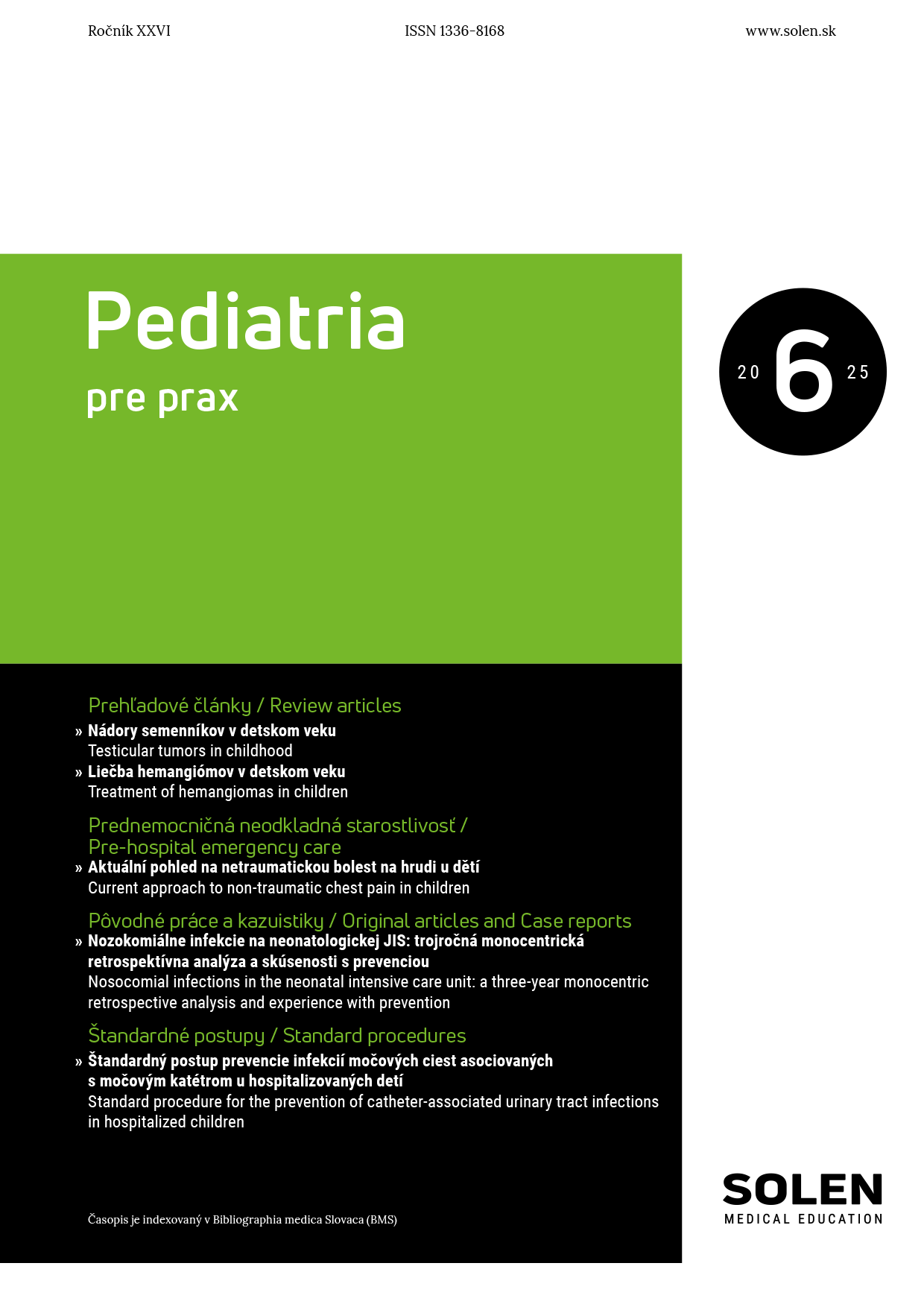Lekárska genetika a diagnostika 2/2025
Interpretation of PTEN gene variants in two pediatric patients suspected PTEN hamartoma tumor syndrome
PTEN hamartoma tumor syndrome (PHTS) is a genetically determined condition caused by germline variants in the tumor suppressor gene PTEN. The clinical presentation of PHTS is highly variable and includes, among other features, macrocephaly, neurodevelopmental disorders, skin lesions, and an increased risk of malignancies. In our work, we present two case reports of pediatric female patients suspected of having PHTS, in whom a significant sequence variant in the PTEN gene was identified by molecular genetic testing using massive parallel sequencing (MPS). In the first patient, prominent macrocephaly, hypotonia, and delayed psychomotor development were observed during infancy. Magnetic resonance imaging (MRI) revealed structural brain changes. Genetic testing detected a pathogenic missense variant c.16A>G (p.Lys6Glu) in the PTEN gene (NM_000314.8, GRCh38), which was not found in either parent, indicating a likely de novo origin. This variant has previously been reported in the scientific literature as causative in association with macrocephaly and neurodevelopmental disorders. The second patient underwent prenatal genetic testing due to a positive first-trimester screening. Analysis of a gene panel associated with rare genetic syndromes identified a previously undescribed sequence variant in the PTEN gene, c.94A>T (p.Ile32Phe, NM_000314.8, GRCh38), which was classified based on predictive models as a variant of uncertain significance with possible pathogenicity. Again, the variant was not found in either parent, suggesting a likely de novo origin. After birth, the child developed mild signs of craniofacial dysmorphism and macrocephaly, without serious neurological issues. Based on further assessments after the second year of life and genotype-phenotype correlation, the variant in the PTEN gene was ultimately deemed causative. The detection of significant sequence variants in the PTEN gene enables not only a more precise diagnosis for the patients but also targeted monitoring and genetic counseling for the entire family. The presented case reports demonstrate that genetic testing plays a crucial role in pediatrics for children with an incomplete clinical picture, where phenotypic presentation is nonspecific and evolves over time. Early diagnosis allows for targeted care, genetic counseling, and the prevention of serious complications.
Keywords: gene, PTEN, massively parallel sequencing (MPS), PTEN hamartoma tumor syndrome (PHTS), clinical genetics

















